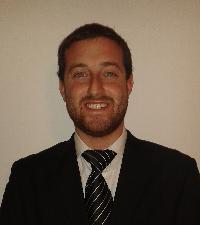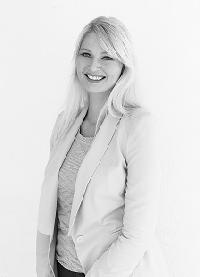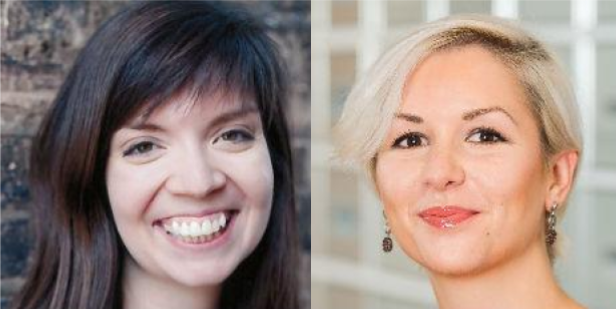
As a benefit of membership ProZ.com Plus members will receive free access to the Together livestream and recordings of key sessions.
This event has been pre-approved for 7 ATA CE Credits ProZ.com Plus members must start certificate time logging feature above video player.
Don't miss this exciting in-person/Livestream hybrid event - view from the comfort of your home or office!
Together is all about networking, discussion and learning – together – about how to approach the business challenges and opportunities we all face. Building on the success of previous years, our 2018 event will be the most interactive yet, with hands-on workshops and thought-provoking discussions.
Our theme for 2018 is Specialise to Excel, which is all about focusing on what your business does best to stand out from the crowd and provide solutions to the changing needs of our end clients with three tracks each moderated by an industry expert:
Specialisation
Moderated by Jason Willis-Lee
In this track, we’ll explore how specialisation in key domains – from law to medicine to art history – can give your business the competitive edge.
Thursday February 22nd, 2018

08:30 - 09:15 GMT
FINISHED
"Together 2018 Keynote Speach"
Presented by

Óscar Jiménez Serrano
Óscar Jiménez Serrano is Senior Lecturer in Translation Interpreting and Head of the Master’s programme in Conference Interpreting at the University of Granada. He has published more than 50 articles and books, including the only existing monograph on English-Spanish technical translation. In 1994, he co-founded ITP Spain (today SDL Spain), but soon joined the University. His work as a professor and a researcher has been carried out internationally, notably as Visiting Professor at the Monterey Institute of International Languages (USA), and Visiting Scholar at UC Berkeley (USA). He was a member of the European Union’s CEVU (Collaborative Virtual European University) and OPTIMALE (Optimising Professional Translator Training in a Multilingual Europe) projects.
He has translated and interpreted for leading institutions (United Nations, European Union, Interpol, Olympic Committee), organisations (OECD, UNESCO, FAO, WHO) and companies (Banco Santander, AT&T, Pfizer) worldwide. Since 2006, he has had the honour to be part of the interpreting team of King Felipe VI of Spain’s Princess of Asturias Foundation, which hosts the internationally renowned Prince of Asturias Awards. He has interpreted some of the most influential people worldwide: monarchs, prime ministers, Nobel laureates, leaders of the biggest tech companies (Microsoft, Google, Twitter), renowned artists, writers, and sport celebrities.
09:45 - 10:30 GMT
FINISHED
"Translation with an eye towards publication: academic translation as an emerging specialty"
Presented by

Avi Staiman
Over the past decade there has been a 150% increase in submissions from non-native English speakers to leading academic journals around the world. This had led to a special niche in the field of academic translation and editing for translators with a strong academic background to assist ESL scholars with their research. We will focus on how professional translators can make themselves a crucial part of the academic submission process by becoming experts in preparing a manuscript for submission.

10:35 - 11:20 GMT
FINISHED
"Working on clinical trials – getting started"
Presented by

Sarah Henter
Very few clinical trials are conducted only in one country; many are available in a variety of different sites in different places, so the translation and linguistic adaptation for different target cultures and languages becomes more important – but it’s not easy to find professionals who specialize in this specific field. With my presentation I hope to provide an overview of what makes the linguistic work on clinical trials so special, what kind of texts and target audiences there are and what knowledge linguists need to acquire in order to efficiently work in this area. This is especially interesting for translators who already specialize in the medical field, but also for linguists interested in legal, business, marketing and related field who would like to add an interesting niche with high demand to their specialization.
The presentation aims to be an introduction to the characteristics and requirements of the linguistic work on texts related to clinical trials. It not only wants to give a brief overview of how clinical trials work and who the stakeholders are, but also underline the skills and knowledge set linguists who would like to further specialize in this field should
- Introduction to clinical trials (what are they; how do they work; who is implied)
- Types of documents used in clinical trials (medical [specialist facing/ patient facing]; legal; marketing, etc.)
- Types of audiences (doctors/investigators/healthcare providers; patients/ other laymen such as healthy subjects/ partners/ legal representatives/ parents, etc.; ECs; CROs…)
- What skills do linguists need to work in this field?
- How to acquire that knowledge?
- Where to find glossaries/ templates/ further information
- MOOCs to take to get you started
- Books you should have read
- Other handy resources
12:45 - 13:30 GMT
FINISHED
"Specialise or perish – specialisation as a USP"
Presented by

Tess Whitty
There are far too many generalist translators in the marketplace, and many of them are subject to price wars or struggle to find good clients. Clients prefer to hire specialists (think of yourself as a patient: you would want a doctor that specializes on your medical condition). As a specialist, you are more likely to find the clients you want, because they’re more likely to find YOU. The most important step you can take today to grow your business and help your ideal clients find you is to specialize, to set yourself apart from others and be unique. This presentation will discuss how to choose a specialization and how to use your chosen field to differentiate yourself in your marketing.

14:00 - 14:45 GMT
FINISHED
"Translating for the art world"
Presented by

Laura Bennett
Multimillion-dollar sales, blockbuster exhibitions and scholarly research: many of the different aspects of the art world rely on translation. Art translation can often be deceptively complex and wide-ranging, touching on other fields such as politics, literature and philosophy. The variety of text types and end users demands flexibility, creativity and accuracy from the translator. This presentation will introduce you to the various types of art texts that require translation and the approaches to adopt. You will also learn about the day-to-day challenges of translating texts of this kind, as well as the need to acquire excellent research skills and a broad base of knowledge. Drawing on the speaker’s own experience of working in this field, the presentation will also cover CPD ideas and routes into this fascinating and varied specialisation. It will also point to the lateral thinking that is sometimes required and the extra mile that needs to be travelled when translating art texts.
Friday February 23rd, 2018

08:15 - 09:00 GMT
FINISHED
"Marketing as your specialist field: what translators need to know"
Presented by

Josephine Burmester & Jessica Mann
What does it mean to specialise in marketing translations? And, how do I set myself apart from all the other translators out there?
To begin answering these questions, we will first present marketing and advertising translation as we see it – as a true specialization and a complex field with its own rewards and challenges. Not only does this work need to fulfil all the classic criteria for translation, it also must be creative, compelling, memorable and engaging to serve its purpose.
In this presentation, we will cover what knowledge and skills translators need to meet advertising and marketing customers’ demands – from cultural awareness and technological savvy to understanding of industry expectations. As a specialist for advertising and marketing language, WIENERS+WIENERS GmbH can draw on years of experience serving leading German advertising agencies and other marketing customers, along with active involvement in these industry circles.
Using case studies and specific examples, we will also review the various sub-specialisations relevant to marketing and advertising, and discuss the challenges involved in this type of translation.
Finally, we will offer our perspective on where marketing and advertising translation is headed, particularly in the age of transcreation and search engine optimisation, and how translators can remain competitive and continue to stand out from the crowd.

09:05 - 09:50 GMT
FINISHED
"The ins and outs of specialising in law, medicine, finance, art history or other domains"
Presented by

Csilla Rostas
Unless you have studied Law, it is rather tricky to know how to specialise in legal translation, let alone find relevant high-calibre training. Legal translation is not viewed as a profession compared with an airline pilot or doctor, for example, based on criteria including public recognition, monopoly over work and a regulatory body. Our profession is based on knowledge and experience. How do we regulate legal translation? The best legal translators are lawyers who have become linguists or linguists who have gone on to study law. Regardless of one’s exact career path, legal translators are themselves responsible for making their profession a profession. The ideal legal translator should have: thorough knowledge of legal terminology and legal reasoning between the source and target legal systems; the ability to solve legal problems, analyse legal texts and foresee text construal; and possess drafting skills and a basic knowledge of comparative law and methods. Lifelong learning is therefore required.
10:30 - 11:15 GMT
FINISHED
"Beyond aerospace and defence: applying the ASD-STE100 Simplified Technical English specification to other domains"
Presented by

Daniela Zambrini

12:30 - 13:15 GMT
FINISHED
"You think you have a USP? Think again!"
Presented by

Nicole Sixdorf
Specialization is the key to success! This mantra may apply to all industries, but it especially rings true for the translation and localization industry where, more than ever, specialization means being on top and staying there. However, it is becoming more and more apparent that there is a growing shortage of verifiably qualified experts who can cover specializations that are in demand and growing in significance. One main reason for this seems to be that a lot of translators simply stop thinking beyond language pair, CAT tool and subject area as their specialty!
Highly individualized client requirements create a high demand for skilled translation and localization partners who provide fitting solutions and can adapt to these new needs. Moreover, steady technological advancements constantly produce new trend areas. Examples such as transcreation and SEO are just the tip of the iceberg.
This presentation aims to provide an insight into the variety of specializations that are in high demand, give a heads-up of what’s yet to come, and answer questions about how these specializations can give you not only a truly unique USP but also access to a vast number of projects and how significant further training is in this context.
13:55 - 14:40 GMT
FINISHED
"Technology in the future: Expectations from users"
Presented by

Timothy Hodge
Technology in the future: Expectations from users
Claudia Di Lorenzo
Matecat
Jure Dernovsek
Kilgray
Vaclav Balacek
Memsource
Fran Fenn
SDL
Stefan Gentz
Adobe Systems











